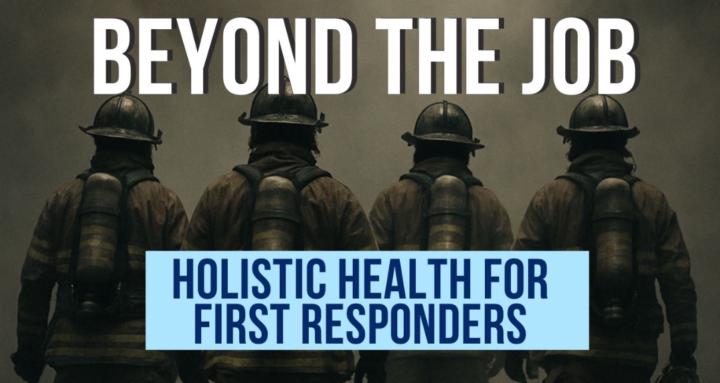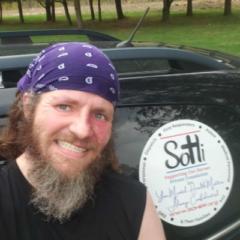
Write something
Workout of the day! Reflecting recovery levels.
🔁 UPPER BODY WOD: Antagonistic Supersets + Post-Workout Breathing (Non-Negotiable) 🔥 RED DAY: Low Recovery Intent: Restore. Get blood flowing, move with intention, and downshift hard post-workout. 🏋️♂️ Workout (Joint Health + Mobility Focus) Super Set A - Band Pull-Aparts – 3x15 - Wall Push-Ups (3-1-3 Tempo) – 3x10 Super Set B - Scapular Wall Slides – 3x12 - Dead Hangs – 3x30 sec Super Set C - Banded External Rotations – 3x15 - Cobra Pose + Diaphragmatic Breathing – 3x5 breaths 🔵 Post-Workout Breathing – 15 Minutes (Deep Parasympathetic Reset) - 5 minutes: Extended Exhale Breathing(Inhale 4, Exhale 8 – nasal only) - 5 minutes: Box Breathing (4-4-4-4)(Smooth nasal rhythm, lying down or seated) - 5 minutes: Legs-Elevated 6-2-8 Breathing(Feet on wall or chair, one hand on belly, one on chest) ⚠️ YELLOW DAY: Moderate Recovery Intent: Maintain strength and movement quality. Train smart, not hard. 🏋️♂️ Workout (Strength Maintenance) Super Set A - Incline DB Press – 3x8-10 - Chest-Supported DB Rows – 3x8-10 Super Set B - EZ Bar Curls – 3x10 - Overhead DB Triceps Extensions – 3x10 Super Set C - Pike Shoulder Taps – 3x20 - Prone T Raises – 3x12 🟡 Post-Workout Breathing – 12 Minutes (Downshift + Repair) - 6 minutes: Nasal 6-2-8 Breathing(Slow and steady, lying down with eyes closed) - 6 minutes: 4-7-8 Method(Inhale 4, hold 7, exhale 8 – keep it smooth, no forcing) 🟢 GREEN DAY: High Recovery Intent: Push performance with precision. Then recover like a pro. 🏋️♂️ Workout (Strength & Performance) Super Set A - Weighted Pull-Ups (or Bodyweight) – 4x6-10 - Barbell Bench Press – 4x6-10 Super Set B - Dips – 4x10-12 - Barbell Curls – 4x10-12 Super Set C - Arnold Press – 4x10 - Face Pulls – 4x15 🟢 Post-Workout Breathing – 9 Minutes (Quick Recovery Drop) - 3 minutes: Tactical Breathing(Inhale 4, exhale 4 – standing or walking, keep nasal) - 6 minutes: 5-5-7 Breathing (Downshift)(Inhale 5, hold 5, exhale 7 – lying down, relaxed posture)
2
0

Why Training On Shift Can Make You Sick In The Long Run
Hey First Responders, We’ve all heard the mantra: “Train hard, fight easy.” But here’s the truth no one talks about — training hard on shift can do more harm than good. Here’s why: 🚒 Shifts Are Unpredictable You might walk in thinking it’ll be a quiet 24…Only to get crushed with back-to-back calls at 2 AM. When that happens, and you've already hit a heavy leg day or brutal HIIT workout earlier, your nervous system and joints are already taxed. Now you’re running medicals without sleep, carrying gear, lifting patients, and taking hits. That’s not making you stronger. That’s pushing you closer to a breakdown. 💥 Recovery Matters (Especially for First Responders) Your body needs recovery to get stronger, not just workouts. Most firefighters already run on sleep debt, elevated cortisol, low testosterone, and nervous system overload. When you stack high-intensity training on top of that during a shift, you’re burning the candle at both ends — and you never give your body a chance to return. Over time, this leads to: - Hormonal dysfunction - Chronic fatigue - Poor sleep - Injury - Burnout 🧠 What We Teach at Holistic First Responders We train smart, not just hard. That means: - On shift? Prioritize low-intensity steady-state movement, mobility, breathwork, or light resistance training. - Post-shift? Focus on recovery, hydration, sleep, and nervous system regulation. - On your days off? Use your high-recovery days for strength and high-intensity conditioning — strategically. - Your performance isn’t just about output—it’s about capacity. Building capacity requires knowing when to push… and when to pull back. If you're tired of guessing when to train and how hard to go — and you're ready to learn how to train, sleep, and recover like a tactical athlete... Stay safe, John Kelly, Founder, Holistic First Responders.
Looking for some help.
Good evening ( as I write this). I’m coming back from abdominal surgery and in need of workouts to do to get back into the swing of things before going back to shift especially, but also in the long run to get back to where I was before and maybe even better in the long run.
"Three Silent Opponents Every Firefighter Faces—And How to Win"
As an ex-firefighter, I know firsthand that every shift can feel like a fight—but we aren't just fighting one opponent; we face three brutal, relentless adversaries every single day: Sleep Deprivation Traumatic Stress Toxic Chemicals Think of it like this: each fire call is a round in a never-ending fight, and these three opponents aren’t taking turns. They hit you all at once, wearing you down both physically and mentally. Firefighters are like warriors without rest—trained to battle the flames but constantly facing hidden enemies. And just like elite athletes or fighters in the ring, these opponents will take us down if we don’t train, eat, sleep, and recover properly. It’s not just about surviving the fire; it’s about surviving the wear and tear that comes with it. Let’s break it down: Sleep Deprivation is the first opponent that sneaks up on you. Like a fighter in the ring too long, your reaction times slow, your focus fades, and your body weakens. Sleep is your corner in this fight, where you catch your breath and regroup. But without it, you’re heading into every round already beaten. Traumatic Stress is your mental sparring partner, and it doesn't pull any punches. The more you endure, the heavier the weight becomes—until one day, you can’t carry it anymore. Mental resilience, just like physical conditioning, needs constant training. Without it, you risk getting knocked out by the buildup of stress. Toxic Chemicals are the silent opponent, always present but rarely seen. Every fire you fight leaves a residue—chemicals, smoke, and toxins that slowly chip away at your health. It’s like a body shot in boxing—minor hits that add up until they drop you to your knees. So what’s the solution? Like any fighter preparing for battle, you must train your body and mind to stay in peak condition. You have to outlast these opponents, and that means treating yourself like the athlete you are. Your Action Steps: Sleep: Prioritize it like it’s part of your job. Off-shift, create a routine to wind down and recover properly. On shift, use strategic naps—those short rests are your best defense against fatigue.
1
0

1-4 of 4
Powered by





